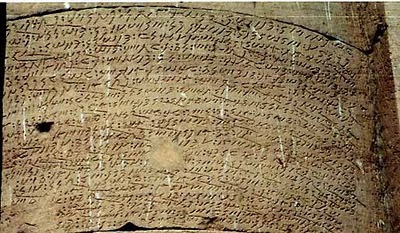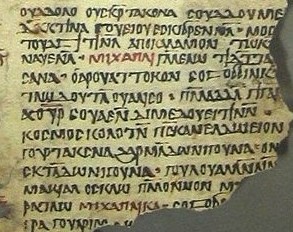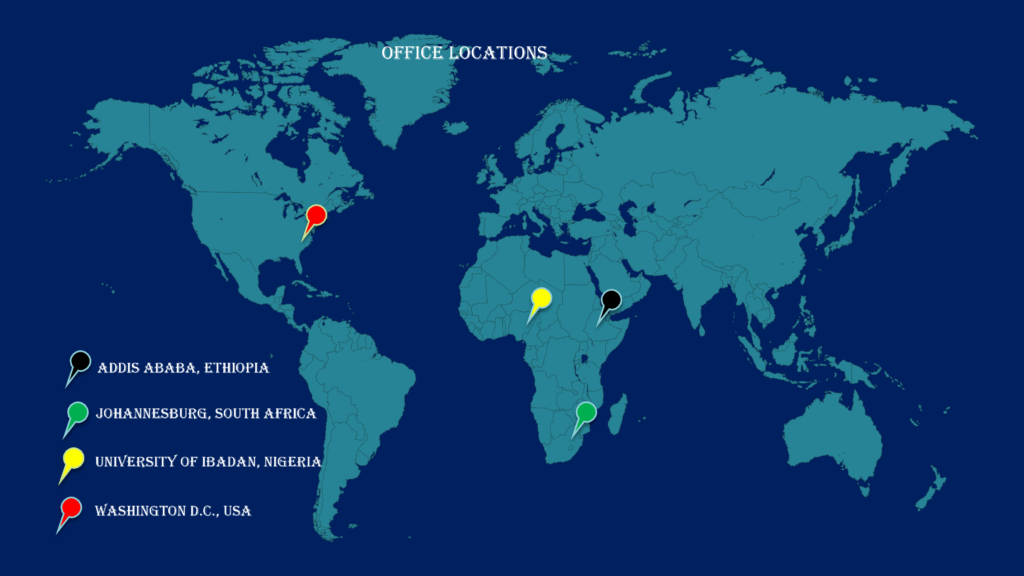Vision
The African Historical Society facilitates young and mature African and African-descended students, scholars, educators, and nation-builders in gaining broad access to ancient, medieval and contemporary information contained in African textual artefacts and excavations. These well-grounded, inspired students, scholars, nation-builders and allies will lead Africa and African-descended communities and cosmopolitan communities at large, into a vibrant and flourishing future emboldened by a comprehensive knowledge of the worldview, vision and contributions to global civilization and culture of Africans. Moreover, to present a more comprehensive appreciation for the value of African history and cultural institutions for surmounting modern challenges. AHS represents a decolonial initiative scientifically deconstructing colonial era scholarship.
The African Historical Society is a not-for-profit open access based institution.

Meroitic: Kush- Ethiopia. The African script developed in situ used to write in the kingdoms / empires of Kush – Meroe – Ancient Ethiopia (an identity and/or empire?).

“Nubian”: “New Meroe”- Kush – Ethiopia – Sudan. The peoples of this region began using the Greek alphabet to write their own African languages (i.e., as Classical Arabic would a few centuries later be used to write the Songhay language in the universities of Timbuktu, Mali after the conversion to Islam) along with other older African scripts that developed in situ in Nile Valley African civilizations. It would become the last place that the languages that developed in situ in Nile Valley, Africa, that were also used earlier in KMT/Kamet/”Egypt”, persisted after Lower Egypt of the white crown had been fully occupied foreign invaders and the Arab conquest of “Egypt” succeeded in the eradication of the indigenous language and it’s supplantation with Arabic.
Mission
- The African Historical Society is an interdisciplinary institution committed to the digital repatriation of information and knowledge contained in the manuscripts, documentary evidence and artefacts produced by ancient, medieval and contemporary Africans. AHS maintains that it is the inalienable right of Africans and the African descended to have access to the information produced by ancient, medieval and contemporary Africans. AHS cooperates with Western institutions and corporations to enhance research resources in Africa and underserved communities internationally.
- AHS aims to redress the destruction of historical memory engendered by the alienation of African information from the African institutions. For example, information contained in the plundered libraries of Ethiopia that remains alienated from the rural Ethiopian Orthodox Tewahedo Church schools and practitioners. Also, the information contained in the millions of manuscripts in Mali that lack proper storage and preservation facilities; and those that remain in European vaults, microfilms and databases, dating from ancient Timbuktu, Mali (30%+ written in the Songhay language). Moreover, the scores of Ethiopian and Old Nubian (i.e., modern Sudan and parts of Ethiopia, an academically shrouded empire, perhaps with influence into West Africa) manuscripts, presently being exhumed, that continue to be exported to Europe and the United States. It is believed that up to circa 80% of manuscripts plundered from Egypt have never been made public. It is worth reflection that although so many historical models posit Asia and the West as the sources of civilization, those are precisely the historical origins of the plunderers of Africa’s libraries from ancient times until today. Oddly, the ancient powerful armies of Nubia and Egypt do not appear to have ever been interested in invading Greece or Rome in search of knowledge.
- The African Historical Society has formed an international coalition that will track manuscripts taken out of Africa. The African Historical Society will record archeological excavations in Africa.
- The African Historical Society is committed to the sustained implementation of state-of-the-field ICT technology to underpin all its work.
- The African Historical Society cooperates with institutions presently working to digitize primary and secondary sources of African history.
- The African Historical Society tracks extant African manuscripts and seek to make their contents digitally available and accessible internationally and broadly to African and African-descended students, scholars and officials in Africa and abroad.

